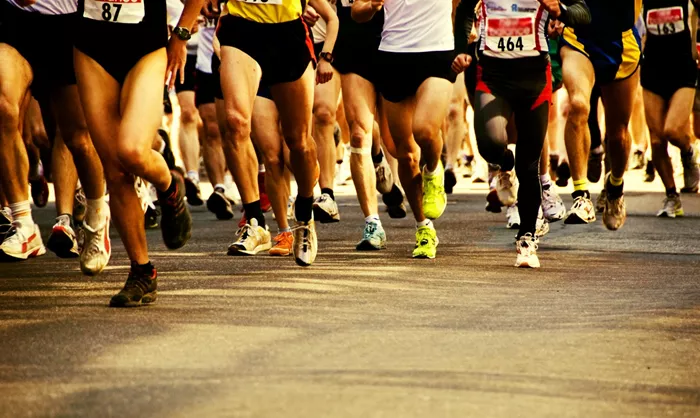As marathon season sweeps across Europe, runners from all over the continent will hit the streets, testing their physical and mental limits. Events like the Paris and Vienna Marathons are already in the books, while cities like London and Manchester will soon shut down their streets to allow runners to complete the famous 42.2 kilometers. Whether aiming for a personal best or simply seeking the experience, marathoners of all levels are gearing up for the challenge.
But what exactly happens to your body when you push it to the extreme of running a marathon? Here are seven important things to know:
1. You May Get Shorter During the Race
It might sound strange, but several studies suggest that runners can lose up to half an inch in height during a marathon. This is due to the compression of your spine, which happens from muscle tension and fluid loss between your spinal disks. While this change is temporary, it’s a notable physical shift during the race.
2. Dehydration Is a Serious Concern
After a marathon, stepping on the scale might show you’ve lost up to 5 kilograms of water weight. This is because long-distance runners sweat a lot, and without proper hydration, dehydration can become a serious issue. Thankfully, marathons are equipped with hydration stations where runners can replenish. Staying hydrated not only helps avoid nausea and dizziness during the run, but it also aids muscle recovery in the days following the event.
3. You’ll Burn a Lot of Calories
Running a marathon can burn up to 3,500 calories, depending on various factors such as your body composition and fitness level. To fuel the body for such a long distance, runners often carb-load the night before. During the race, your body relies on fats and carbohydrates for energy, with carbohydrates providing quick energy. That’s why energy gels are a common choice among runners—they provide an instant energy boost to keep you going.
4. Eating Might Be the Last Thing on Your Mind After the Race
It’s not uncommon for runners to feel less interested in food immediately after crossing the finish line. While you may have dreamed of a big meal during the race, the intense physical exertion can suppress your appetite. Exercise, especially strenuous activity like running a marathon, diverts blood flow to the heart and muscles, while reducing the function of other body processes, including hunger. This explains why food might not seem appealing right away.
5. Sleep Can Be Hard to Come By
After running a marathon, you might find yourself unable to sleep despite feeling completely exhausted. One reason is the adrenaline rush from completing the race, which keeps your heart rate elevated and your mind active. Additionally, the stress placed on your body triggers the release of cortisol, a hormone that prepares you for “fight or flight.” Both of these factors can prevent restful sleep, even though you’ve just completed a massive physical challenge.
6. Expect Some Uncomfortable Side Effects
While soreness from running a marathon is expected, some runners may experience more unexpected issues, such as chafing, bleeding nipples, and even toenail loss. These side effects can occur due to the friction caused by running for hours. Although uncomfortable, they are common among long-distance runners, so it’s important to be prepared and take care of your body both during and after the race.
7. “Marathon Blues” Are Real
After crossing the finish line, many runners experience a post-race low. This can be caused by a sense of anti-climax after months of intense training, followed by a sudden stop. With all the focus on reaching a specific goal, once it’s accomplished, the body and mind may experience a drop in mood. This feeling is common and usually temporary, but it’s important to be mindful of the emotional ups and downs that can follow such a monumental achievement.
Whether you’re an experienced marathoner or a first-time runner, understanding what happens to your body during the race can help you better prepare for the physical and mental demands of the marathon journey.
Related topics:
- Immunotherapy Offers Cancer Patients An Alternative To Surgery And Chemo
- Ultra-Processed Foods Make Up Nearly Half Of U.S. Grocery Purchases
- Md Anderson Researchers Showcase Breakthrough Cancer Trials At Aacr 2025


